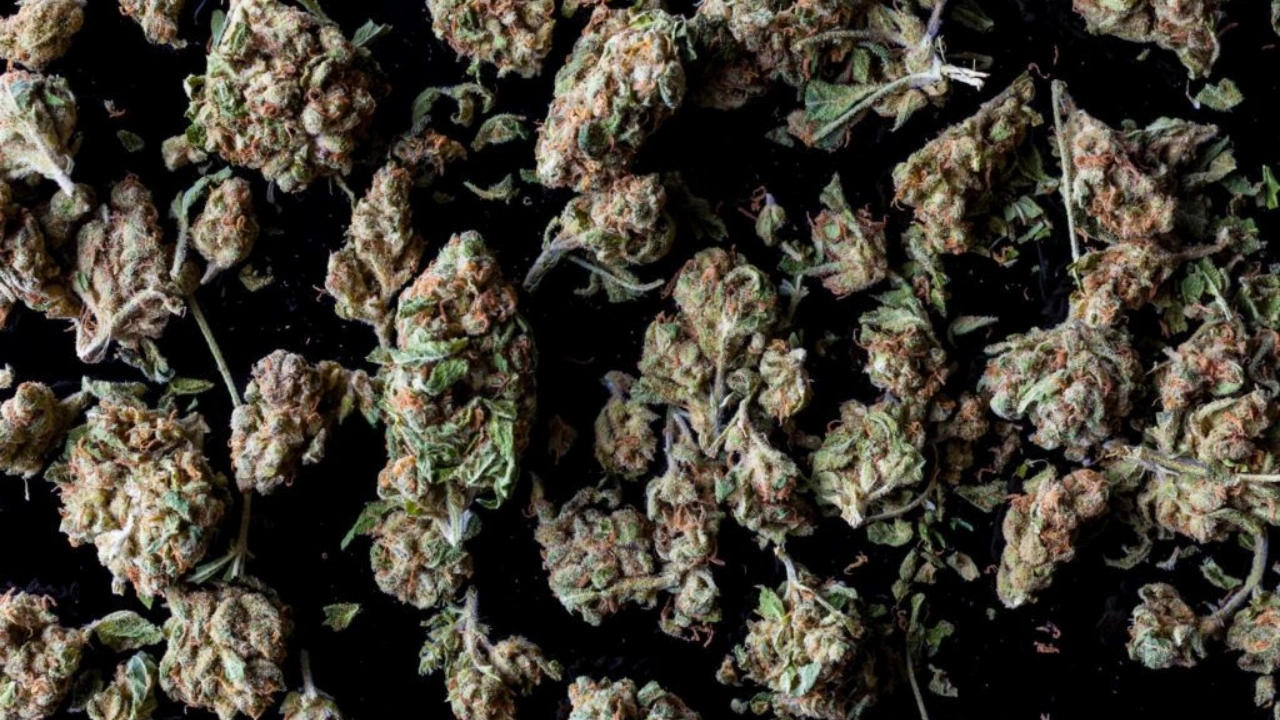Starved for good news from Washington DC, the broad cannabis movement greeted President Joe Biden’s signing of the Medical Marijuana and Cannabidiol Research Expansion Act into law in December with enthusiasm and hope.
Surely, new research supporting the rescheduling of marijuana – and, with it, tax relief for the cannabis industry – as well as other federal reform would soon follow the first stand-alone bill related to MJ signed into law since Richard Nixon’s presidency.
At least, that’s what industry executives and investors hoped would happen after the bipartisan legislation became law Dec. 2.
But six months later, a growing chorus of critics note that the federal government has registered zero new cannabis research projects under the new law.
Nor have any new applications for producers of research-grade cannabis been approved under the new law, according to the Federal Register.
That’s where the U.S. attorney general must place a notice in order for research applications to be considered.
And that is something Attorney General Merrick Garland has yet to do.
‘We have not seen any benefits’
Yet, many of the same obstacles – including questions of funding as well as how to navigate an onerous federal review process – remain for any would-be researchers of marijuana.
The U.S. Drug Enforcement Administration, which funds and oversees national marijuana prohibition efforts, also supervises federally approved cultivation of cannabis used for research purposes.
Under the new law signed by Biden, the DEA, rather than health or science officials, remains in charge of allowing new research, according to Nora Volkow, the director of the National Institute on Drug Abuse (NIDA).
For decades, NIDA has supplied researchers with marijuana as well as funding.
In an emailed statement to MJBizDaily, Volkow noted it’s simply too soon to tell how the DEA will choose to wield that power.
“Studies on cannabis and other scheduled substances are critical,” she said, “and NIDA welcomes efforts to facilitate the process of obtaining a DEA registration to conduct research on these substances.
“As we do not yet know how the DEA will implement the new law, at this time, we cannot comment on the impact it will have on research.”
A DEA spokesperson told MJBizDaily the agency would have no comment.
But one DEA-licensed researcher says the new research bill hasn’t helped.
“In fact, we have not seen any benefits in velocity of marijuana research from this new law. And I question whether the law had any value,” Sue Sisley, an Arizona-based physician and principal investigator on a U.S. Food and Drug Administration-approved clinical trial involving cannabis, told MJBizDaily via email.
Sisley’s Scottsdale Research Institute is one of the eight entities with DEA permission to produce cannabis.
All eight applied well before the research bill took effect. The DEA has not approved any new producers since then.
“If you’re asking, ‘Has the bill greased the wheels for research?’ – I don’t think anybody can endorse that,” Sisley wrote.
Six months isn’t very long in science, but that lapse in terms of practical effect is giving some observers pause.
So is one of the organizations that claimed credit for the bill.
‘Drafted’ by marijuana’s sworn enemy
Smart Approaches to Marijuana (SAM) is one of the Washington lobbies that says it helped draft the bill and guide it through Congress.
That group is arguably the country’s most vocal and effective anti-legalization organization, though critics have accused SAM of cherry-picking data and misrepresentation.
SAM’s executive director, Kevin Sabet, appeared at a May Senate Banking Committee hearing to testify against cannabis banking reform.
In a Dec. 2 news release hailing Biden’s signing of the cannabis research legislation, SAM claimed to have “drafted” the bill.
Then, in a Dec. 6 release, U.S. Rep. Andy Hunter, a Maryland Republican and a bill co-sponsor, said SAM “helped” with the bill.
Sabet would not consent to an interview with MJBizDaily for this story.
However, a Sabet spokesperson emailed a statement that, while not addressing SAM’s role in drafting the bill, did dismiss any notions the legislation was ill-intended.
“Legalizers have long argued that marijuana is medicine and this bill advanced a solid, science-based research agenda – not hyperbole,” Sabet’s statement reads in part.
“It is no surprise that those who opposed the bill and those who stand to profit from full-scale commercialization continue to mischaracterize legitimate legislation that clearly expands research opportunities.”
A follow-up email also attributed to Sabet noted that “it often takes a long time for federal legislation to be fully enacted. It has only been six months. It isn’t serious to suggest that the bill hasn’t achieved its intent at this time.”
‘No one realizes how bad’ the research law is
Shane Pennington, a cannabis policy attorney, is among the research law’s staunchest critics.
“No one realizes how bad that research bill is,” he told MJBizDaily. “I didn’t realize it, until I went and looked at it again.”
In a Substack post last July, Pennington highlighted the new authorities granted to the DEA regarding cannabis research, arguing they are counterproductive.
Those include the ability to unilaterally determine whether an application to study the drug is incomplete and then, without consequence, to ignore the application.
More recently, Pennington pointed out how the research reform bill altered the Controlled Substances Act to create cannabis-specific research requirements, independent of the drug’s status under the act.
This means that, even if Congress or the Biden administration were to elect to reschedule marijuana, the same barriers to research could well remain.
All of this, coupled with the authority over research delegated to law enforcement rather than health or science officials, led Pennington to call the law a brilliant coup: Legislation to stymie cannabis research was passed off as a major breakthrough.
“Marijuana is on lockdown unless you can get the attorney general to say, ‘Well, how about some cannabis science?’” Pennington told MJBizDaily.
“You are giving authority over cannabis science to the biggest enemies of cannabis science who have ever existed on planet earth.”
Even more circumspect observers have noted the bill doesn’t help researchers wanting to study commercially sold marijuana, which tends to have higher THC levels than federally approved research cannabis.
University of California, San Diego, researcher Ziva Cooper argued in an interview with Psychiatric News that the new law mainly benefits researchers who already enjoy the logistical and administrative support of institutions with established cannabis programs.
In other words, pressing questions about marijuana and health could remain unanswered, such as how dispensary-grade cannabis or delta-8 THC might interact with a teen’s anxiety or ADHD drugs or even a senior’s diabetes or heart medication.
According to Sisley and Pennington, the much-vaunted research reform act won’t help fill in those blanks.
“This whole thing is a public health travesty,” Pennington said.
Chris Roberts can be reached at chris.roberts@mjbizdaily.com.





